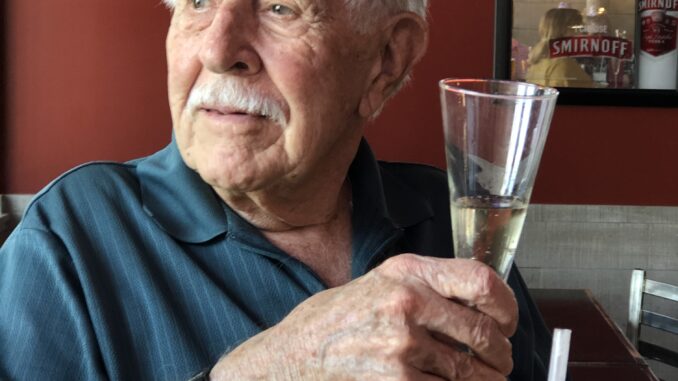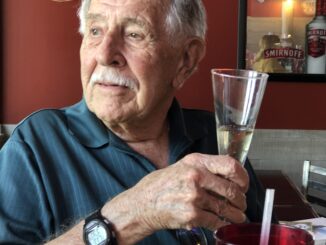
Walking the Tightrope
Former Secretary of State John Foster Dulles once coined a phrase to describe the tensions of our increasingly tenuous relationship with the Soviet Union during the height of the “Cold War” of the 1950s and 1960s. He called the process “Brinksmanship,” which gave us the picture of our two nations marching toward the very brink of a nuclear war with our respective adversary, and at the last minute calling in the diplomats to try to work out some kind of detente that would keep us from annihilating each other. Except for one period of near-calamity, that uneasy peace held until the USSR was basically outspent in defense outlays, when we kept raising the ante to the point where our adversary had to fold his hand. Now we have a brand-new crisis with Russia, which has elements of the Cold War but has become red-hot in the past month. Analysts are warning that this latest confrontation is at least as dangerous is at least as dangerous as it became in 1962.
That 1962 period I mentioned above was called the Cuban Missile Crisis, which was spawned when our U-2 reconnaissance aircraft took photos of locations in Cuba where long-range nuclear missile sites were being completed. A Soviet freighter was also spotted in the Atlantic, loaded with missiles and steaming toward Cuba. When comparing today’s situation in the Ukraine with the crisis of 1962, we could, to some extent, understand the position of the old Soviet Union. We might conclude that we reacted in much the same way as Russia had been behaving up until their unprovoked invasion of Ukraine a month ago. We didn’t want our mortal enemy to have the gun pointed at us, within a short missile shot of cities on the East Coast. Russia has had similar feelings about our presence in Eastern Europe, which no doubt threatens their supremacy in the area and frustrates their plans to regain a lost empire.
That may be where the similarity ends, but I thought it would serve a useful purpose if I recounted my own experience with the Cuban Missile Crisis in 1962. At that time, I was a combat-certified B-52 copilot,
manning a crew position at an Air Force base in Georgia. On the day that the crisis turned hot, my crew, along with six other B-52s from our squadron, were on “hard” alert. We normally rotated in and out of the base’s alert facility taking our turn “in the barrel” on weeklong shifts. We were accustomed to answering the “horn” during practice alert drills, sprinting to the aircraft, starting engines, and awaiting the coded “message”from our command & control center. Always before, these had resulted in a “green dot”, or practice alert.
But not this time. The klaxon interrupted our breakfast with its knife- like blast this particular morning, and we dutifully ran to the bird, cranked ‘em up and awaited the “word.” It was soon forthcoming, and it was the message we had always prepared for, but still dreaded. It was a “blue dot,” which meant that we were to taxi into takeoff position and await the next message, which would launch the entire alert fleet in “red dot” conditions. That would have sent us to war. We were loaded with four one-megaton nuclear weapons, each of which were to be dropped on different cities in the Soviet Union. To say we were scared would never describe the feelings. We all believed our mission would be a one-way trip, so we defaulted to our years of combat crew training, and buried ourselves in a very serious review of the many procedures we would be called on to perform en route to, and over, the targets.
We sat there sweating at the end of the runway for about four hours, when we received another message, this one said to “stand down,” return to the alert facility, and await further instructions. The collective sigh of relief could probably have been heard in Atlanta. The ground alert force was soon re-programmed and we were sent home for a period of crew rest, as the threat was not nearly over. Instead, each crew was now scheduled to fly a 24-hour “airborne alert” mission every other day until the other side backed down. So for the next thirty days that’s exactly what we did, fully combat loaded and ready to divert from our standard orbit over the Mediterranean to our pre-planned combat entry point into enemy territory. At the end of this monthlong period, with our crew having
flown fifteen of these grueling missions, we were ragged out to the point of having to carry an extra pilot along, so we could rotate the duties and occasionally get some rest.
Then it was over. The Soviets had capitulated to our demands and had agreed to remove the missiles from Cuba. We returned to our “normal” crew duties, feeling a whole lot older than we had a month before. This whole operation was the ultimate example of “brinksmanship,” with all the tensions associated with nobody’s favorite game of “Russian Roulette.” We were within an eye blink of taking this mortal game to its ultimate conclusion, which is probably why I remember it in such vivid detail all these years later.
Returning to the tightrope we are walking in Eastern Europe, we find that we are embroiled in a dilemma which has all the stench of those Cold War days of 1962. In Russia we have a megalomaniacal tyrant who has unilaterally reached out to snatch the very sovereignty of an Eastern European nation, using various lies as instruments of foreign policy to convince us to desist in aiding the besieged nation of Ukraine in defending itself. This war criminal has already threatened the use of advanced weapons to secure his goals, including the ultimate nuclear option. Our dilemma in walking this particular tightrope, is that we could likely secure a cease fire and a return to a pre-war detente, based on the incredible fight the Ukrainians are putting up. This scenario assumes that we’re dealing with a rational mind who rules by counseling with his advisors to avoid making rash decisions. It also assumes that said advisors have no fear of the Gulag – or worse. But we all know that absolute power corrupts absolutely, and will provoke the kind of delusional thinking that has led to the current crisis.
Putin is losing the war in spectacular fashion on the battlefield, and our aid to the Ukrainians is being viewed by the Kremlin as an act of war.
If he were dealing from a position of strength, he would have many options to deal with us. However, a combination of the sanctions, the surprising
unity of the NATO countries, and the incredible courage of the Ukrainian defenders have set him back more than he would ever admit. And so, what we have is something like a cornered rat, losing friends, losing ground, hemorrhaging money, army in disgrace, losing support both at home and worldwide. Except for China, which is acting as inscrutable as ever and not showing its hand, all the time lusting for Taiwan. So what does a cornered rat do when all sides are closing in on the trap. Studies of rats in overcrowded situations have shown that they’ll resort to anything: murder, rape, and general destruction as salient characteristics.
The question I pose is this: If we are to refrain from a “hot” war with this delusional dictator, out of fear that he will act out his most destructive threats, how can he be brought down? His violations of international law during the period after our recent election, should teach us that our form of government, no matter how much we believe in it, is vulnerable to compromise by charlatans. Not to compare us in the slightest with Russia, but it would seem logical that enough of Putin’s well-heeled oligarch-detractors might pool their resources into a power cabal, and either buy off or “disappear” his major supporters. In my own Polllyanish belief in the basic decency of the human race, I still think that there are enough good people in Russia to bring him down, ultimately. As much as anything, I wish I were young enough not to be laughed out of the Air Force recruiting center when I apply for recall.
George Thatcher, 2022
George is an American Bad Ass. He grew up in Jersey, flew B-52s in Vietnam, taught English, Spanish and other languages to children around the world, makes his own salsa, has been known to enjoy a beer or two and has called Lubbock home for a few years, just to entertain the locals. Welcome to Raiderland, Major. We are going to feature some of his writings going forward. Some new, some old. Some rhyme, some don’t. When it comes to George, there’s no box. So… enjoy our friend and enjoy his writings! – Hyatt



